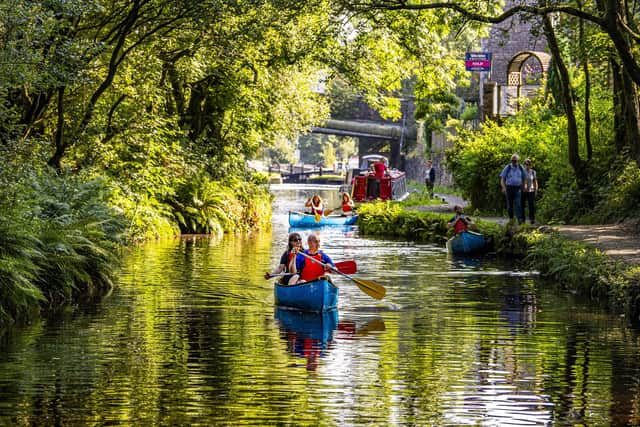Canals could close and become derelict as Canal & River Trust loses 40 per cent of funding
The Canal & River Trust, which maintains a 2,000-mile network, warned that the loss of 40 per cent of its funding after 2027 – amounting to more than £300m in real terms – would lead to the decline and eventual closure of some parts of the network.
It said climate change, bringing more drought and extreme storms, is taking a heavy toll on the 250-year-old infrastructure, so financial cuts will have a “potentially devastating impact”.
Advertisement
Hide AdAdvertisement
Hide AdRichard Parry, CRT’s chief executive, said: “The Government review has confirmed the value and importance of the nation’s canals and their vital role in our health and wellbeing, for wildlife and nature, and in supporting jobs and the UK economy.


“Yet, at the same time, they have announced a funding decision which puts the very future of canals at grave risk.
“By sharply reducing their investment in the critical work to care for and safely manage this vulnerable national canal infrastructure, the Government is failing to recognise the full cost of sustaining the vital benefits they provide."
Beryl McDowall, 79, a member of the Residential Boatowners’ Association, who has worked on boats since the 1970s, said: “It is going to go back to how it was in the 60s and 70s. A lot of canals will close. Even if volunteers are still doing the work, they still need materials.
Advertisement
Hide AdAdvertisement
Hide Ad"It is time consuming and expensive and there’s not the bank of knowledge around that there used to be. It only needs a major event like a breach on a waterway that is prone to them and that could see it close indefinitely.”
The charity said the network saw an “extraordinary renaissance” after losing hundreds of miles of waterways in the 20th century, meaning there are now more boats on the canals than during the peak of the Industrial Revolution.
Research found the canals to support 80,000 jobs and contribute £1.5 billion annually to the economy, with added benefits such as savings to the NHS over more than £1 billion because of people making active use of the waterways and towpaths.
CRT gets less than 25 per cent of its total revenue from the government – less than its publicly-owned predecessor British Waterways.
Advertisement
Hide AdAdvertisement
Hide AdThe announcement means from 2027, payments will decline by five per cent each year, with no provision for inflation. Between 2027 and 2037 that will represent a real-terms reduction of £320 million.
A Defra spokesperson said since 2012 CRT knew it would have to find alternative sources of funding.
To date they’d awarded £550 million and were giving another £590 million from now until 2037 which was “a significant sum of money and a sign of the importance that we place on our canals”. He added: “We have been discussing this with the charity for some time and have been offering support on how it can increase income from other sources, as per the original objective of the grant funding.”
